第69章 CARICATURES AND LITHOGRAPHY IN PARIS(5)
To speak more plainly, and to drop the metaphor of giant and dwarf, the King of the French suffered so much, his Ministers were so mercilessly ridiculed, his family and his own remarkable figure drawn with such odious and grotesque resemblance, in fanciful attitudes, circumstances, and disguises, so ludicrously mean, and often so appropriate, that the King was obliged to descend into the lists and battle his ridiculous enemy in form.Prosecutions, seizures, fines, regiments of furious legal officials, were first brought into play against poor M.Philipon and his little dauntless troop of malicious artists; some few were bribed out of his ranks;and if they did not, like Gilray in England, turn their weapons upon their old friends, at least laid down their arms, and would fight no more.The bribes, fines, indictments, and loud-tongued avocats du roi made no impression; Philipon repaired the defeat of a fine by some fresh and furious attack upon his great enemy; if his epigrams were more covert, they were no less bitter; if he was beaten a dozen times before a jury, he had eighty or ninety victories to show in the same field of battle, and every victory and every defeat brought him new sympathy.Every one who was at Paris a few years since must recollect the famous "poire" which was chalked upon all the walls of the city, and which bore so ludicrous a resemblance to Louis Philippe.The poire became an object of prosecution, and M.Philipon appeared before a jury to answer for the crime of inciting to contempt against the King's person, by giving such a ludicrous version of his face.Philipon, for defence, produced a sheet of paper, and drew a poire, a real large Burgundy pear: in the lower parts round and capacious, narrower near the stalk, and crowned with two or three careless leaves.
"There was no treason in THAT," he said to the jury; "could any one object to such a harmless botanical representation?" Then he drew a second pear, exactly like the former, except that one or two lines were scrawled in the midst of it, which bore somehow a ludicrous resemblance to the eyes, nose, and mouth of a celebrated personage; and, lastly, he drew the exact portrait of Louis Philippe; the well-known toupet, the ample whiskers and jowl were there, neither extenuated nor set down in malice."Can I help it, gentlemen of the jury, then," said he, "if his Majesty's face is like a pear? Say yourselves, respectable citizens, is it, or is it not, like a pear?" Such eloquence could not fail of its effect;the artist was acquitted, and La poire is immortal.
At last came the famous September laws: the freedom of the Press, which, from August, 1830, was to be "desormais une verite," was calmly strangled by the Monarch who had gained his crown for his supposed championship of it; by his Ministers, some of whom had been stout Republicans on paper but a few years before; and by the Chamber, which, such is the blessed constitution of French elections, will generally vote, unvote, revote in any way the Government wishes.With a wondrous union, and happy forgetfulness of principle, monarch, ministers, and deputies issued the restriction laws; the Press was sent to prison; as for the poor dear Caricature, it was fairly murdered.No more political satires appear now, and "through the eye, correct the heart;" no more poires ripen on the walls of the metropolis; Philipon's political occupation is gone.
But there is always food for satire; and the French caricaturists, being no longer allowed to hold up to ridicule and reprobation the King and the deputies, have found no lack of subjects for the pencil in the ridicules and rascalities of common life.We have said that public decency is greater amongst the French than amongst us, which, to some of our readers, may appear paradoxical; but we shall not attempt to argue that, in private roguery, our neighbors are not our equals.The proces of Gisquet, which has appeared lately in the papers, shows how deep the demoralization must be, and how a Government, based itself on dishonesty (a tyranny, that is, under the title and fiction of a democracy,) must practise and admit corruption in its own and in its agents' dealings with the nation.Accordingly, of cheating contracts, of ministers dabbling with the funds, or extracting underhand profits for the granting of unjust privileges and monopolies,--of grasping, envious police restrictions, which destroy the freedom, and, with it, the integrity of commerce,--those who like to examine such details may find plenty in French history: the whole French finance system has been a swindle from the days of Luvois, or Law, down to the present time.The Government swindles the public, and the small traders swindle their customers, on the authority and example of the superior powers.Hence the art of roguery, under such high patronage, maintains in France a noble front of impudence, and a fine audacious openness, which it does not wear in our country.
Among the various characters of roguery which the French satirists have amused themselves by depicting, there is one of which the GREATNESS (using the word in the sense which Mr.Jonathan Wild gave to it) so far exceeds that of all others, embracing, as it does, all in turn, that it has come to be considered the type of roguery in general; and now, just as all the political squibs were made to come of old from the lips of Pasquin, all the reflections on the prevailing cant, knavery, quackery, humbug, are put into the mouth of Monsieur Robert Macaire.